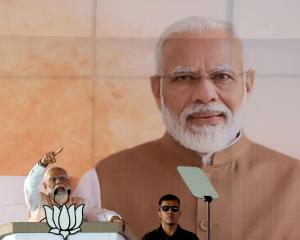
Outspoken, self-appointed motoring guru Clive Matthew-Wilson opines we don't need to lower the open road speed limit. He contends that speed is not the problem because 85% of fatalities occur below the speed limit. His reasoning does not stand up to scrutiny.
According to his reasoning, if hypothetically the speed limit was increased to 140kmh, and if hypothetically 99% of fatalities occurred within this limit, he could continue to claim that speed is not the issue, as these deaths are occurring within the speed limit.
If Clive's figures are correct, they indicate the present speed limit is too high.
The NZ annual road toll peaked at 843 in 1973, dropped to 253 in 2013, but since then has increased 9.8% each year to 377 in 2018. Among 21 Western European and Anglophone countries, New Zealand has the second-highest road mortality (7.8/100,000 population), exceeded only by the US.
It is conceivable that this unwelcome distinction is a reflection of the size of the US and the distance its populace drives. If the metric adopted was changed to deaths per 100,000 cars per kilometre, my speculation is the US may even be trumped by New Zealand.
Why has the NZ road toll begun to increase? Baby boomers have begun to ''grow old disgracefully'' by taking up motorcycling. Motorcycle deaths have increased from 6% of the total in 1987 to 16% in 2015.
In absolute numbers killed, this equates to an increase of the annual road toll by 26, so this alone does not explain the increased annual road mortality since 2013 of 125.
Since 2010 the pedestrian death rate has been static, and on-road cycle fatality has decreased slightly.
Our increasing road toll overwhelmingly involves four-wheeled vehicles. This problem is multifactorial. Our roads are tortuous, undulating and mostly poorly engineered. Our cars are old and relatively unsafe; 80% cost less than $20,000 and 60% less than S10,000.
We have a relatively poor standard of driving. We have a dearth of public transport. Foreign drivers are not a significant factor, as they are involved in 6.1% of fatal and injury accidents. Twenty-two percent of road fatalities occur in the South Island, considered by many to be a killing ground from foreign driver mayhem.
These aforementioned factors are long term and cannot explain the recent alarming increase of the road toll. Its cause is apparent to me: in recent years our roads have become significantly more congested.
This is unsurprising.
Apart from ''minnows'' San Marino and Monaco, NZ has the highest rate of car ownership in the world (860/1000). Superimposed upon this is not only our rapidly growing population, but also we are individually driving on average about 25% further each year. As our road network has not elongated significantly, increasing congestion is inevitable.
How can we reverse our increasing road toll due to congestion without delay?
Improved engineering of our road network, modernising our cars, and improving our driving habits are quixotic. Our first reaction should be to buy time by reducing the speed limit on the open road, except on exceptionally safe roads where 100kmh is still appropriate.
Although this will increase congestion , as each car will be on the road longer, if the speed limit is adjusted appropriately, it will reduce the road toll.
Drivers will have more time to react and if a collision occurs, the consequences will be less. A bonus is that our carbon footprint will also be reduced.
Advantageously, this measure could be carried out promptly, would be inexpensive, and could be reversed if the other detrimental factors can be eventually remedied.
Although hopefully an interim measure, this decision would be unpopular, so a bipartisan agreement would be essential.
- Ian Breeze is a retired surgeon living in Dunedin.












